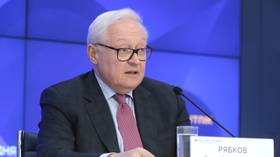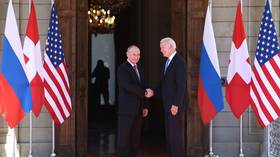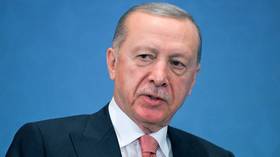US heeded Moscow’s de-escalatory message – Russian deputy FM

The US and some of its allies apparently heeded a signal from Russia that prevented an escalatory spiral, Russian Deputy Foreign Minister Sergey Ryabkov has said.
In an interview with Russia-1 aired on Sunday, Ryabkov offered his assessment of two phone calls between Russian Defense Minister Andrey Belousov and Pentagon chief Lloyd Austin, which took place on June 25 and July 12.
The Russian Defense Ministry said that the July call focused on “preventing security threats and reducing the risk of potential escalation.” The previous call was dedicated to “the exchange of views on the situation around Ukraine,” it said. Meanwhile, US officials have said that both conversations revolved around the importance of maintaining contacts amid the Ukraine conflict.
Ryabkov noted that “some signs indicate that the signal that was sent by the Russian side to Washington – and I believe not only to Washington, but also to some other capitals controlled by it – has reached them. We have avoided a new cycle of escalation.”
The senior diplomat also pointed out that while the Doomsday Clock – a symbolic representation of the likelihood of global catastrophe, primarily all-out nuclear war – is set at around two minutes to midnight, this does not mean that escalation is inevitable. “But we must approach what is happening with full responsibility. The military needs to keep its powder dry because very different scenarios are possible,” he remarked.
The New York Times reported last week, citing sources, that it was Belousov who called Austin in July to “relay a warning” regarding “a Ukrainian covert operation in the works against Russia that they believed had the Americans’ blessing.” The outlet claimed that the overture surprised Washington, which was unaware of any plan and subsequently told Kiev to abort it. Details of the alleged operation remain unclear.
This came after in late May Russian Senator Dmitry Rogozin said that a Ukrainian attack – reportedly involving drones – had targeted one of the country’s key early warning systems. While both Rogozin and the Austrian military suggested that the raid was sanctioned by the US, an unnamed American official told the Washington Post that his country was “concerned” by the attacks, noting that “Russia could perceive its deterrent capabilities being targeted.” He added that “these sites have not been involved in supporting Russia’s war against Ukraine.”














